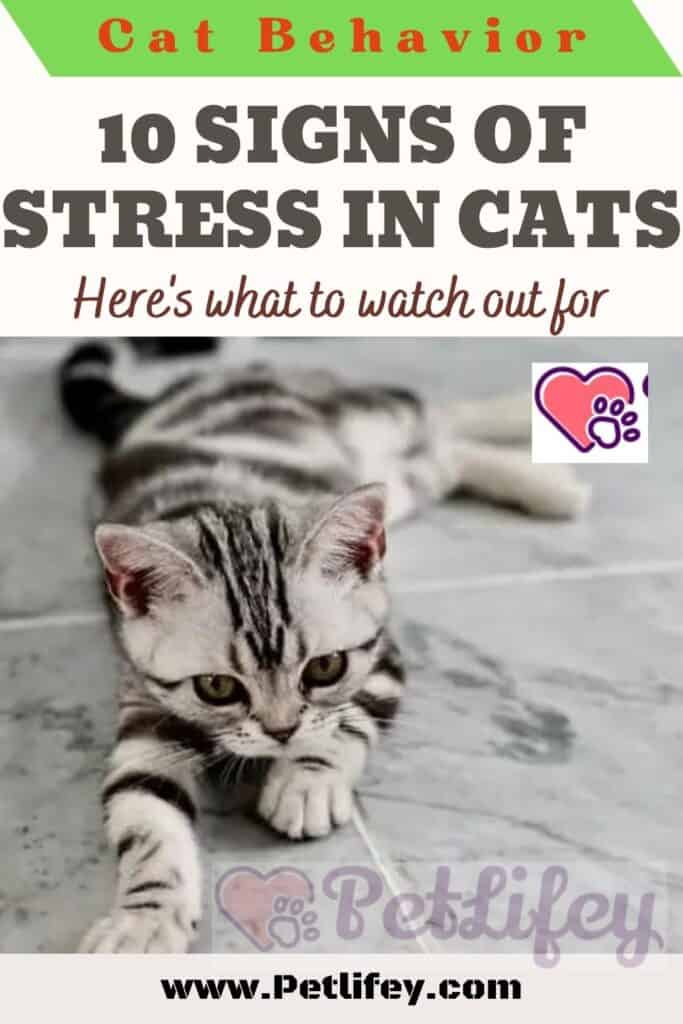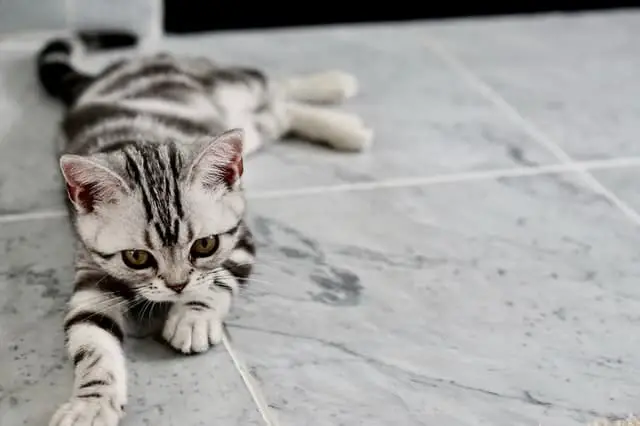
It is very important not to underestimate a stressed feline, as stress can decrease their immune defenses. Here are 10 signs of stress in cats to watch out for.
Stress for the cat, as well as for the human being is a defense mechanism, however if it occurs often it can become chronic and cause health problems to our four-legged friend.
This is why it is very important not to underestimate a stressed cat and to be able to recognize the various symptoms that arise. Here are 10 signs of stress in cats.
10 Signs of stress in cats: how to recognize them

As we mentioned earlier, cats can develop stress just like their humans, especially if their usual routine is disturbed and they don’t know what to do. Causes of stress in cats can be many, from the litter box not being cleaned frequently enough, to feeling scared, sick or traumatized. Here are some signs that can tell you if your cat is stressed.
The cat cleans itself or scratches itself excessively
Your four-legged friend may show that he is stressed by cleaning or scratching a lot, until he sheds his hair and irritates his own skin, just like when humans bite their nails. In this case it is necessary to contact the veterinarian to find a solution to calm your cat.
Dirty litter
Your feline may show stress if she goes to the toilet outside her litter box. This could be a sign of restlessness as the litter box could be dirty, or it could be caused by intestinal problems. In both cases it is necessary to take the cat to the vet to find out how to help him.
The cat is aggressive
If your cat is stressed out, she may spend a lot of time hiding under the bed or on top of furniture, or protecting her surroundings. This attitude could turn into aggression towards you or towards other animals, so it is important to take your cat to the vet as soon as possible.
Sticky cat
Sometimes the opposite can happen and your cat can get clingy, or upset every time you leave. This behavior can also coincide with constant meowing when you are not at home, in which case your cat may suffer from separation anxiety.
The cat meows too much
Your cat may show stress by meowing a lot. There are certainly some cats that usually “talk” a lot, but if your cat is not one of them and starts meowing continuously like he never has before, this could be a sign of stress.
Lack of appetite
Usually when the man feels upset or anxious, he sometimes loses his appetite. The same is also true for kitty. If your cat stops eating or starts eating very little, this could be a sign of stress.
Lethargy
If you notice your cat sleeping more than usual or losing a lot of energy, this could indicate that your cat is stressed. For this a visit to the vet is necessary.
Belly problems
Stress in cats could also be an indicator of other health problems, especially if accompanied by diarrhea, constipation or other problems in the cat’s tummy. For this reason it is necessary to take your four-legged friend to the vet for a visit.
General changes in behavior
No one knows your cat better than you. If you notice differences in behavior, for example, your cat was once playful and is now tired all the time, or he was quiet and now jumps at every noise, he may be suffering from stress. In fact, when a cat is stressed he can exhibit behavioral changes.
The cat is out of breath
Sometimes a stressed cat, in certain situations, such as meeting another cat or small noises that frighten it and make it jump, may present out of breath. In this case, you would notice your cat with its mouth open and its tongue sticking out.
What to do about it
If you notice any of these signs of stress in your furry friend, we recommend that you visit the vet first to make sure that it is not a physical ailment that is causing the anxiety. In the event that the latter is not the cause of stress in the cat, the vet can help you to solve the mental stress of your four-legged friend in the best possible way.
Some experts recommend a tree to allow the cat to climb, play and have its own space. In addition, food puzzle games are also a good activity for the feline to use his hunter and eater skills. Spinning toys help keep the cat active in ways that reduce stress.
If your cat’s anxiety is extreme, it may be time to talk to your vet about some natural supplements or other medications that can help your kitty feel less stressed. Otherwise, be patient, kind, and offer your four-legged friend all the soothing options, such as cuddles, some new toys, or a calming treatment to help relieve anxiety.






